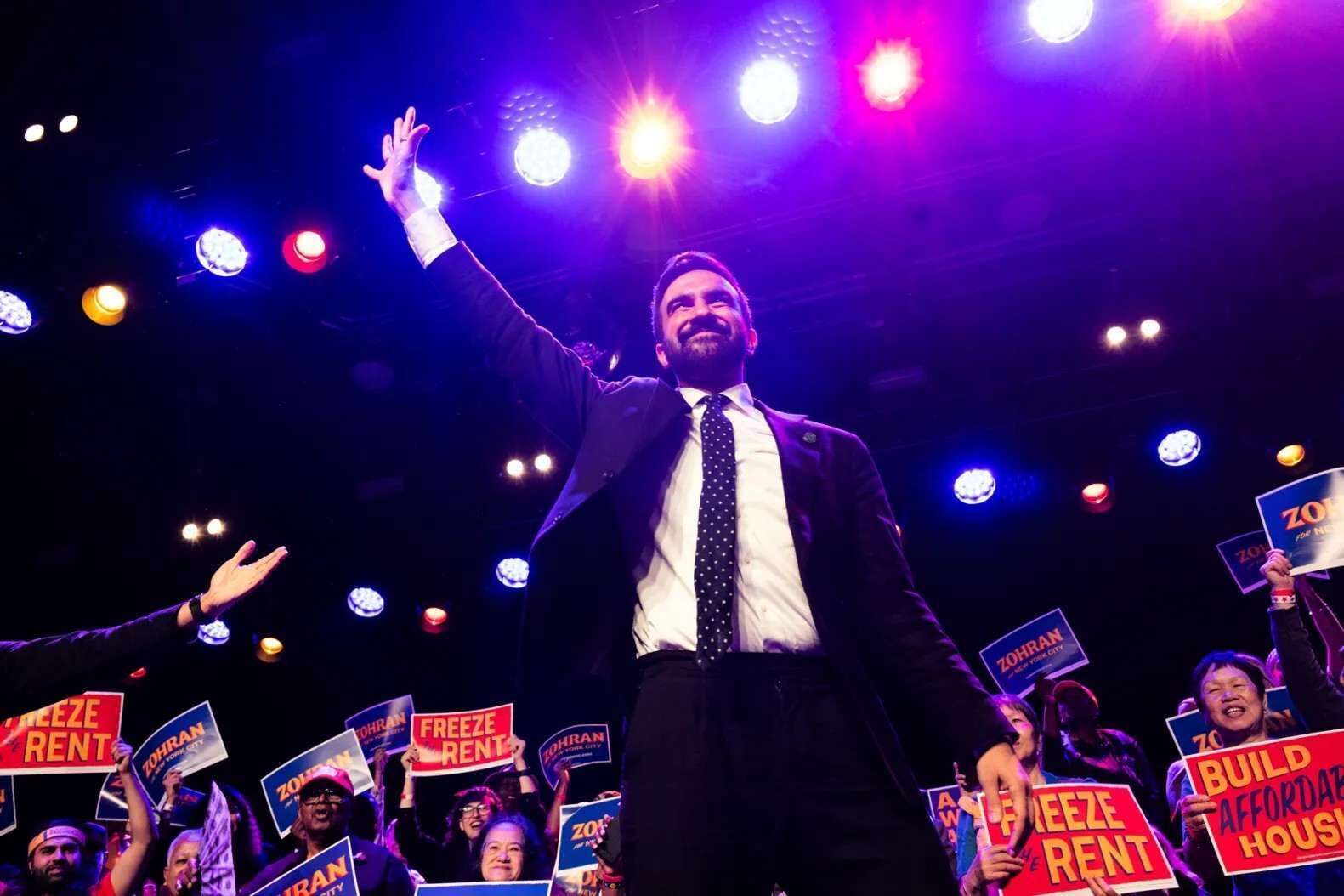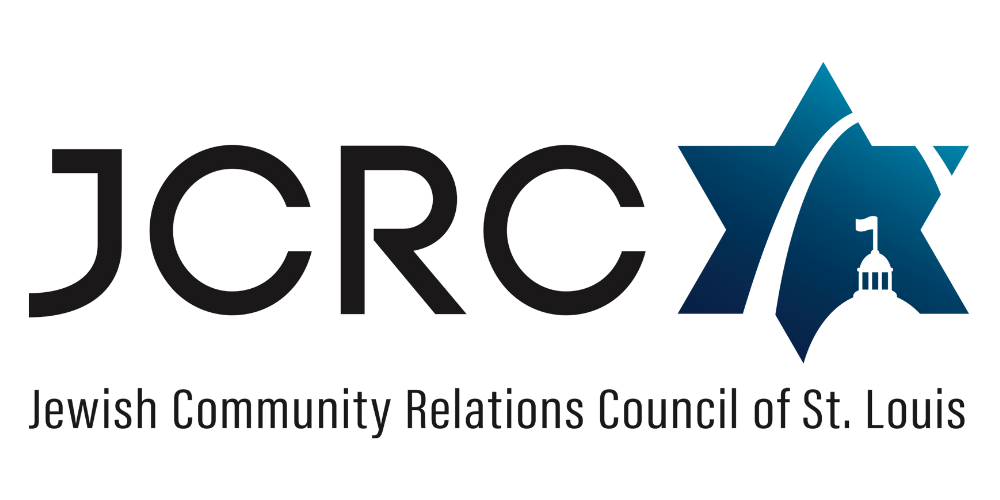
Holding the Center:
Lessons from the Mamdani Election
What does it mean to hold the center and how does that relate to the recent election of Zohran Mamdani as the next Mayor of New York.
Over the last few months of the New York mayoral race, as people began to learn more about the mayor and his beliefs about Israel – the rhetoric became both divisive and painful. One could say that the Jewish community was used as a political football - which is often the case. However, Jews on their own also engaged publicly in what for the most part had been a simmering internal conversation. How much do you care about Israel and antisemitism vs how much do you care about the growing inequality and inequity in our society?
JCRC’s are very familiar with these questions because they are at the heart of our identity and the very questions used to debate our core mission – which is to address BOTH of those extremely important issues. We do not believe this is an either-or proposition. But because there is little nuance or gray left in our world – the Jewish community is often asked by our own leaders to make this choice. One or the other. You can’t have it both ways.
Today, you either realize
1) That there certainly is inequity and a challenge to democracy from this administration, BUT THAT THE most important issue in front of the Jewish community today is antisemitism and anti-Zionism. Or
2) Or you believe that that antisemitism and anti-Zionism are not the threat others think it is – and you accept fully that our crumbling democratic institutions and economic inequity IS the main threat to our daily lives. One or the other. You must choose.
Holding the center means NOT being forced to make that false choice.
Holding the center means acknowledging that though the voices asking us to choose are loud and often powerful – on both sides – they do not represent most of the people in between these extremes who KNOW we must do both.
It is the majority that knows doing both – and doing them well - is the best way to both protect ourselves and also live out the liberal Jewish values that the majority of the wider Jewish community embraces here in America especially.
When looking at our local debates on how to balance these interests, we often forget that places like New York and Berkeley are not in the rest of the country. I recently read this from a friend who lives in New York City. “Many people call me an American Jew. I am not. I am a New York Jew. Those are two VERY different things.” I couldn’t agree with that more. Jews are different and well, everyone is different in New York. The recent election proves that in so many ways. And yet, its impact on places outside of New York is palpable. The conversation now is about what that impact is and what it should it be. Or more precisely, what should we let it be.
In watching this evolving street fight, I felt like I was watching the past thirty years of Jewish communal debate play out over the course of months. And just like in our national elections, not everyone who wakes up to emerging national issues or candidates follows this work closely every day. So, in many ways it felt like people in their echo chambers were just now realizing that there was another chamber – one they had little idea existed.
We had one rabbis' letter – than another. And many were surprised by the backlash one way or another. Not all but some.
We had emerging public critique of the candidate blending with incredible moments of racism and bigotry, and we had incredible insensitivity to the import of a sophisticated approach to Israel by the candidate that could not simply be ignored. Many dismissed real and legitimate Jewish concerns about rising, increasingly-violent antisemitism – and many exploited those concerns to fuel division and fear and advance Islamophobic and other dangerous bigotry.
So, if that was not the best way to deal with this moment - how should we have dealt with it?
I would suggest that the only way was from the center.
For example, if you were coming from the stream of Jewish life that is more secular, more comfortable in the non-Jewish world and maybe even more critical of Israel – you are likely part of the Liberal Jewish tradition who thinks about decades of a Jewish commitment to reaching beyond our community to help repair the world. Tikun Olam and Tzedek, Tzedek Tirdoff (Justice, Justice you MUST pursue) are your calling cards and you think about those things every day. You are not a bad person and in fact, you make up the majority of Jews writ large – those lesser engaged with formal, organizational Jewish life.
On the flip side, you may be someone who believes in those things as well, but hear the louder refrain coming from an unrestrained and conflict-driving social media, and an increasing number of columnists willing to weigh in on these issues – especially after the recent operations in Gaza. And you see real problems. You see misinformation and conspiracy theories – and some of you have never seen them before. And you don’t like it and are worried. You do not believe that people opposed to Israel are people to fear – but you do fear some of them. And you too are not a bad person. And if you are more engaged in Jewish organizational life you want your leaders to “do something about it.” You are largely unaware of efforts that have gone on in the background of Jewish life to address these matters for decades – but why should you. They happened in the background. And they were meant to keep our community connected to other faith and cultural communities – however imperfect.
All of these people are in the center and are reasonable and rational – and yet – they have few groups to join or organizations to belong to because today – when there is fear and trauma – what we see is more anger and extreme rhetoric.
In this recent election, I had serious concerns about Zohran Mamdani. I did not think he was a horrible person, and I did not think he was a monster. I do interfaith work for a living so I most surely did not have anything against his faith. But I did categorically disagree with his beliefs about Isreal - which in specific cases I found spread lies, and conspiracy theories about Israel and Jews. And I am not even talking about the use of the word Genocide – which I could speak about in another ten pages but will not. I am saying other lies and conspiracy theories were present that we find in many activists and Muslim or Arab politicians based on their core beliefs, the media they grew up reading, and how they frame/view the very real things they have seen in Israel, Gaza and the West Bank. Things I and many others see differently.
So there. I said it. But what did that make me during the election. For one group – let’s say the well-meaning people on the left – I was siding with the bigots and the Islamophobic folks on the far right because I sounded like them. (I did not think I did). For the folks on the – let’s say well-meaning right – I was not hitting hard enough. In fact, because I did not say he did not deserve to be mayor – I was compared to the far left who didn’t care at all about his positions on Israel. I cared. I just said that I did. But not enough apparently.
So where is the approach from the center. Well, here is one possible explanation.
There are many who said if we did not live in NYC it did not matter what we thought. There are those who lived in NYC who said we should just work with the new mayor and that is the path forward. And if I lived in NYC I would say the same thing. But I do not. Most people do not. And here is where I think the center is for us.
· We do not have to work with Zohran Mamdani. But as the Mayor of the largest city in the United States with a platform unlike any others but the highest in Federal Government – what he says matters. So, for us – we need to hold him even more accountable for his words and meaning. We are not the ones making deals with him or being impacted by his policies. But we are the ones who others will rely on to say – see – he’s the Mayor of NYC and even he believes X about Israel. That matters to us where we live when OUR local politicians and activists may say the same things.
· The center must speak out loudly against bigotry and racism aimed at the Mayor and acknowledge that this did just happen in the election. From Jews and non Jews. The center must also stand up for critique that does not cross that line – just like when we talk about crticism that involves Israel. Not all criticism of Israel is antisemitism. Not all criticism of Zohran Mamdani is bigotry. Now did the ADL's monitor cross that line? By feeling maybe - but not by content. We do need someone to hold him accountable. But the ADL and others have already acknowledged that how they described this effort was not optimal. Especially not for the center.
· The center must make our case for holding him accountable for false comments about Israel and Jews - AND - for praising his caring for those among us who are suffering economically. These impulses represent the best of what our community is about. A vibrant future for the Jewish community and a safe and democratic future for everyone who lives in the United States and her cities.
· If this model can do anything – it can reflect a better approach to our local elections and conversations by bringing down the heat that will damage our relationships with non-Jewish communities who have progressive elements.
· We may not be able to convince Zohran Mamdani about the errors of his ways – just like we will likely be unable to convince those aligned with Tucker Carlson that his views have veered into conspiracy theories for years.
But – we may be able to make our case in a way that shows more of our reason and understanding than the trauma I know so many of us are going through.
So again, what is holding the center? Not being caught up by either extreme – but also calling out the faults of each. Hate spewed at the other is no better than insensitivity about Jewish and Israeli trauma. We can do both. We can do both well. And we must for the best possible future – locally and nationally.
